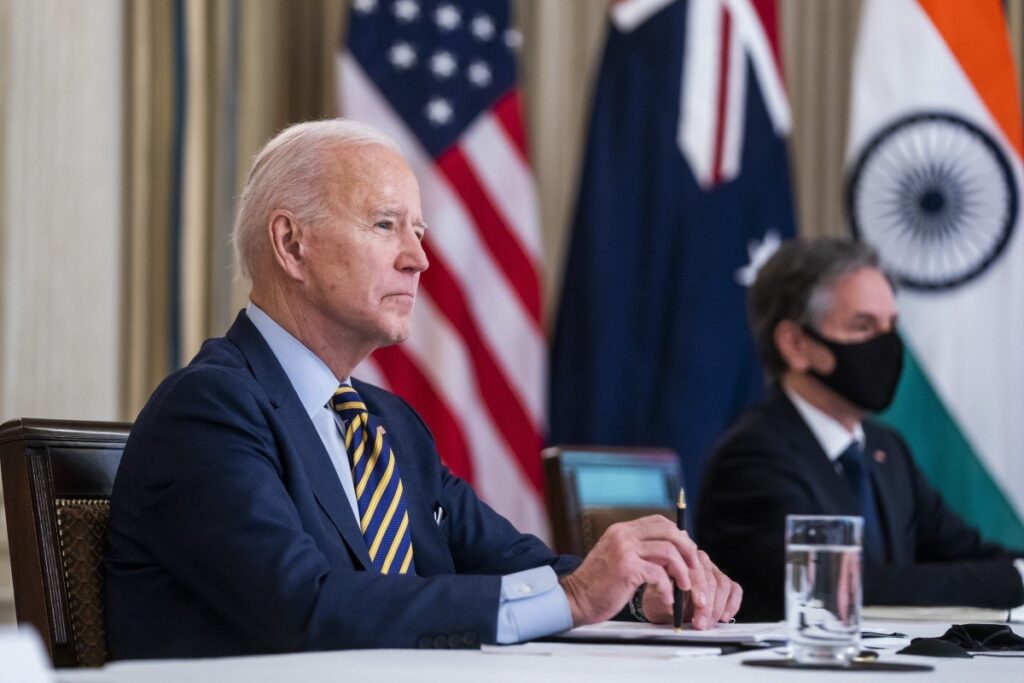Building on a diplomatic effort launched during the Trump Administration, President Joe Biden on Friday hosted his first in-person meeting with leaders from “Quad” nations India, Japan, and Australia to discuss the ever-growing threat posed by Communist China.
The summit, which came days after President Biden announced a new security pact with Australia and Britain that includes an agreement to provide Canberra with a new fleet of nuclear submarines, is said to have focused on COVID-19, climate change, emerging tech, and cybersecurity.
Officials press releases didn’t mention the word “China,” but Beijing wasn’t fooled.
“The purpose of the Quad mechanism is to encircle China,” warned China’s Global Times. “If Japan, India, and Australia went too far in following the US strategy on containing China, they will become cannon fodder as China will resolutely safeguard its interests.”
As an added threat, the regime sent 24 fighter jets screaming towards Taiwan the day before the summit began.
China’s increasing hostility towards Taiwan is one of many sources of tension between it and Quad nations. Other factors include:
“The Quad is uniquely problematic for China’s strategy because its aim of unifying a multilateral coalition of resistance has the potential to stiffen spines across the whole of the Indo-Pacific and possibly beyond,” explains former Australian Prime Minister Kevin Rudd. “For Xi, the critical question is whether the Quad will evolve to be large, coherent, and comprehensive enough to effectively balance against China, thereby undermining any sense that its dominance, in Asia or globally, is inevitable.”
The Quadrilateral Security Dialogue or “Quad” has met five times since its resurrection in November 2017. Among its chief concerns are to maintain the rules-based international order China seeks to overturn and to ensure a “free and open” Indo-Pacific in the face of rising Chinese assertiveness.
And while the modern Quad has yet to declare its opposition to China – a fact that may have something to do with a falling out that occurred in 2007 when Australia and India were hesitant to push Beijing – it may be close to doing so now.
“For the first time in the Quad’s history, the stars are aligning for a harder line on China, and the implications going forward could be significant,” writes Derek Grossman, a senior defense analyst at the nonprofit RAND Corporation. “Beginning with Australia, perceptions of China have progressively dimmed in recent years.”
The same sentiment is spreading throughout India after numerous clashes along its border with China left troops dead and injured.
Japan, which has long supported the bloc, further solidified its support for the Quad last month when it unveiled new legislation that allows information-sharing with Australia and India and established a new department within its Ministry of Defense to improve coordination with New Delhi and Canberra on regional issues.
“Washington is the only country to directly label China as ‘adversary,’” notes Grossman. “However, to date, the United States has resisted the urge to convert the Quad into an anti-China grouping, probably at the behest of other, more hesitant participants. This looks like it is set to change because the others want change.”
Sources:
New ‘urgency’: Biden’s ‘Quad’ poses a rising challenge to China
